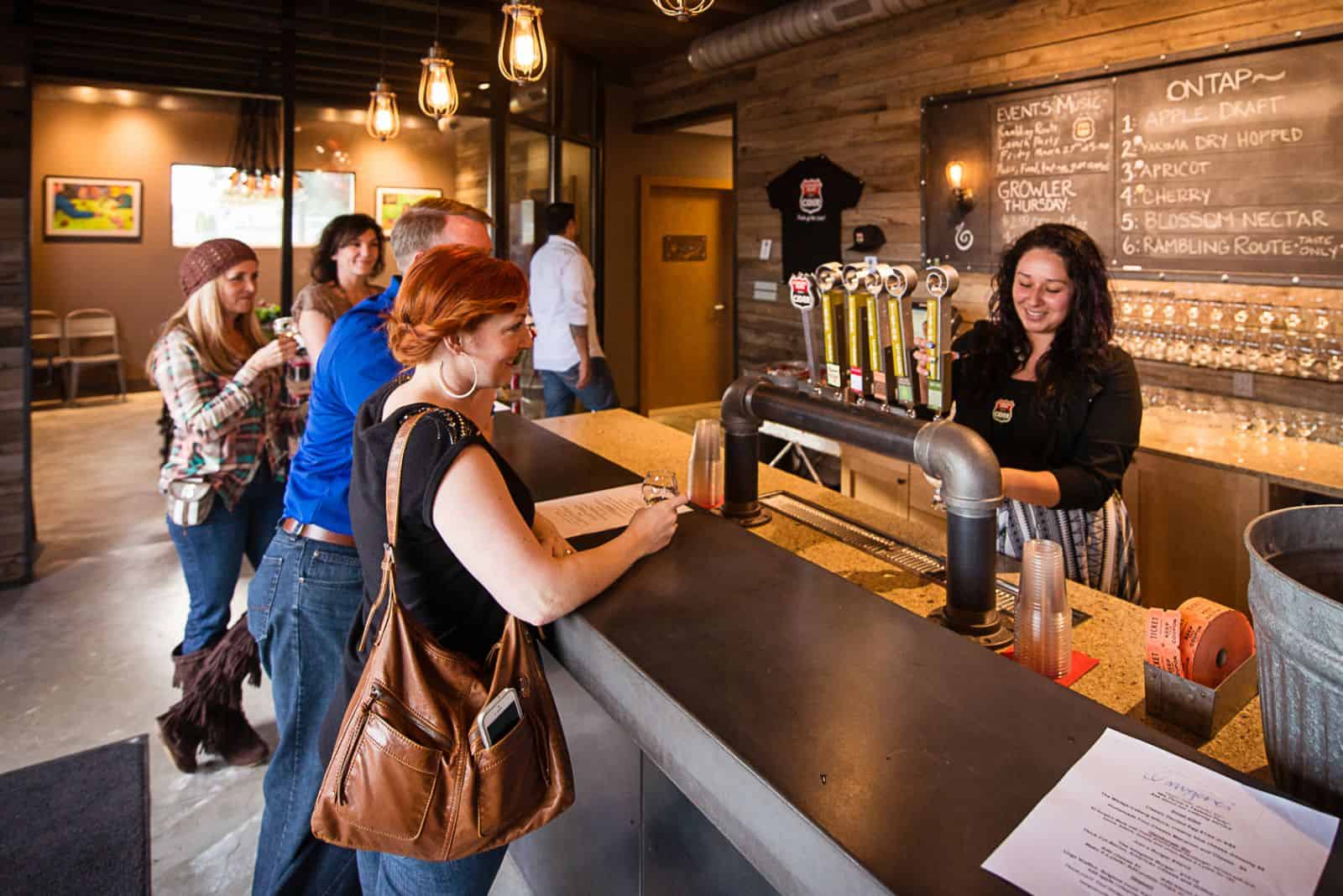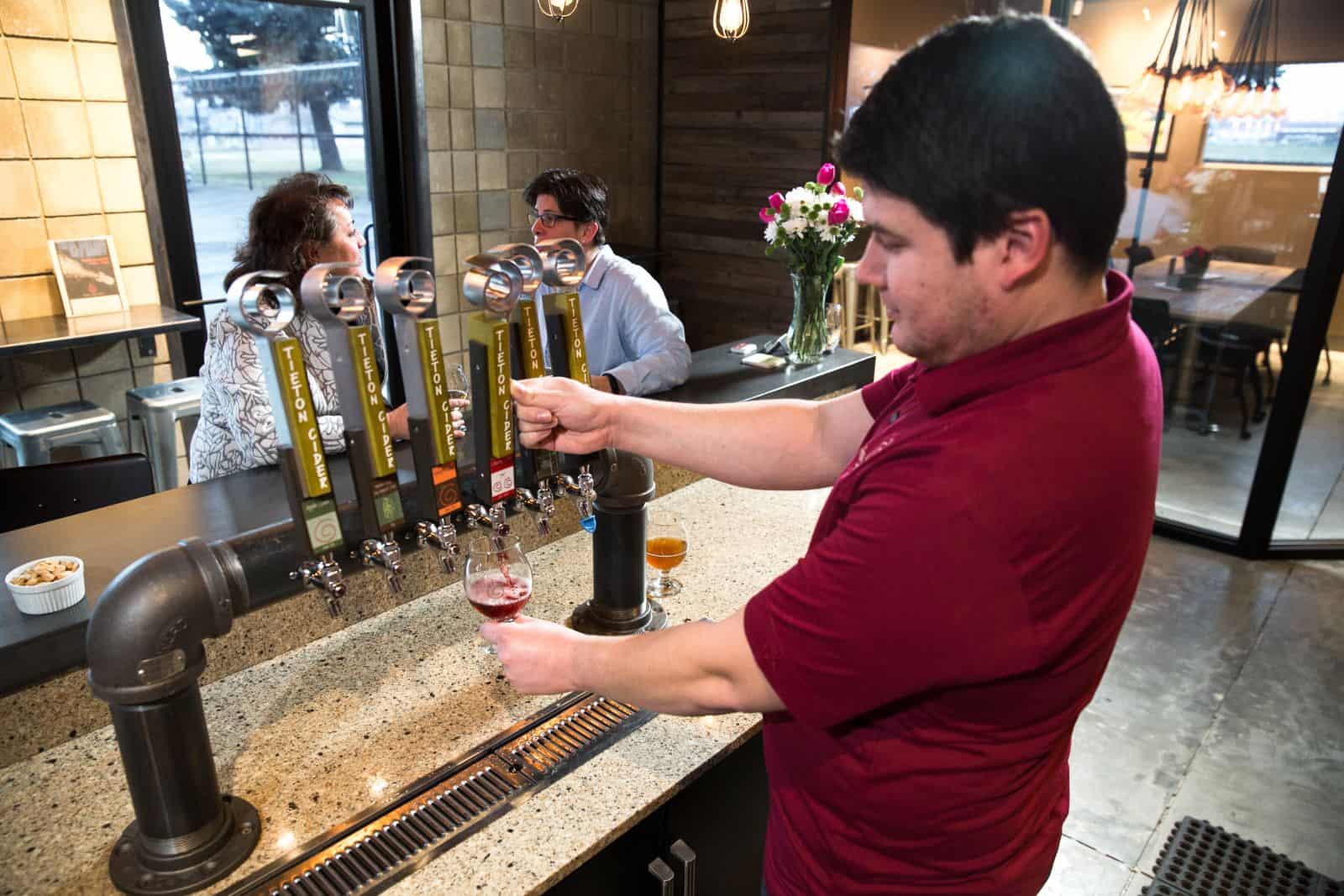The cider industry has taken a big step forward this year with the release of the Certified Cider Professional (CCP) program. Developed by the United States Association of Cider Makers (USACM), the online program (which includes an exam) is the cider world’s answer to beer’s cicerone and wine’s sommelier.
“We thought it was up to the USACM to help define what cider is and to create a base level of education,” said Paul Vander Heide, the chair of the Certified Cider Professional program committee that created the test.
When the USACM looked at the landscape of cider education, it saw a real opportunity to guide the conversation. The thinking goes that if you can create a baseline knowledge that all cider producers, distributors, retailers and enthusiasts have, that knowledge will help drive the market forward and increase awareness for all cider products. Beyond offering quality products, education is undoubtedly the key to bolstering cider’s reputation and appeal.
As of right now, 250 people have been certified through the program. Vander Heide is happy with where the program is currently, but he’s helping lead the push to get more people certified.
“We’re talking to distributors who have sales teams, and we feel it’s important they broaden their knowledge,” said Vander Heide. “And at the retailer level, we feel people need to be educated if they’re serving cider at a bottle shop or on draft at a pub or restaurant.”

So far, the USACM has seen a considerable portion of test takers fall into the cider enthusiast category. Vander Heide attributes that to the feeling of pride people get when they put their knowledge to the test (literally) and pass. As we all know, the cider community is passionate and hungry to learn, and now they finally have a way to prove it.
The exam itself is no walk in the park. To earn your accreditation, you need to have a broad base of knowledge drawing from all facets of the cider industry, starting with the apple itself.
After reviewing the exams, Vander Heide has noticed a curious pattern.
“A lot of folks think apples are mechanically harvested,” he said, noting that in fact, the opposite is true. Test takers are also expected to know how apples are processed and turned into juice.
Then there’s fermentation, an obviously important part of the cider-making process. Here, the exam gets technical about the different kinds of techniques cider makers use to ensure a healthy fermentation. What kinds of hazards and problems do cider makers deal with throughout a fermentation? There are lots of things that can go wrong. To pass the test, it’s helpful to know how problems can occur during fermentation and why.

Finally, the exam takes you through cider’s incredibly diverse range of tastes and styles. You’ll be expected to know the prominent characteristics of styles from Spanish, English and French to hopped, barrel-aged and fruit-flavored.
If you’re thinking that sounds like a lot of information, the CCP has a resource guide to help prepare people for the test. And while the CCP intends to release a self-study guide in the future, for now, Vander Heide said, “If you read all four books, the exam really shouldn’t be too difficult.”
The USACM has even bigger plans for the program’s future—it’s currently in the early stages of developing a curriculum to include level two and level three accreditations.
“It’s going to get more complex,” said Vander Heide. “There’s going to be some sensory analysis questioning where you’re going to have to taste the product and be able to identify styles by flavor profile, production method, region or the fruit itself.”
The USACM is currently recruiting people to add to the CCP advisory board to help create these new levels. The association also wants to expand the board to include more authors who have spent their careers writing about cider, as well as people from both the retail and producer sides of the business.

As for the level one exam, whether it’s a producer bulking up his or her knowledge, a salesperson talking to a consumer, a retailer pouring a pint or an enthusiast drinking with friends, the CCP can be a useful tool to sell more cider or simply increase cider awareness.
For more information on the CCP program, visit the USACM’s website, and for just $75 (or $65 for USACM members), you too can join the elite group of certified cider professionals.
- Photos: Tieton Cider Works